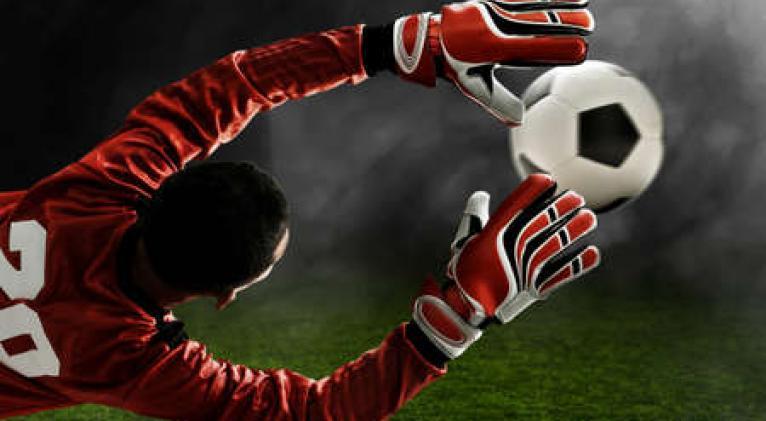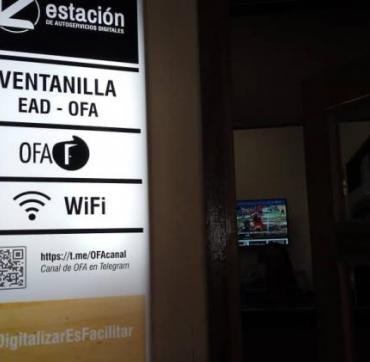From School Games, Our Best Goalkeeper
especiales

The kid, more than overcome by embarrassment, is amazed. He feels like an Olympian without yet mastering the essence of Olympism. The same thing happens to most of those gathered at Eduardo Saborit sports center on August 22, 1963, even to this reporter who’s only been on the job for six weeks and covers the opening of the First National School Games for Mella magazine. The new journalist has found in the sparks of the eyes of the young athlete, the shudder of all the future competitors gathered here: they imagine themselves champions without even having started in the competition.
How can I manage what I see and enjoy? he wonders worriedly while talking to several of the athletes and jots down. All this forces us to go far beyond publishing the right order of the presidency and other data, he adds to his thoughts. For now, he remembers that the opening scenario, filled today with joy, was a den of doom filled by bettors and traffickers: the so-called Marianao Cynodrome where dog races were staged with dogs of greater humanity than the beasts that made them run linked to various corruptions. The same thing happened with horse races, cockfights or the Jai Alai Frontón, filling a beautiful discipline in the neighborhood of Key West with the insult of money. Ah, if for twenty pesos the paid boxers got into the ring to kill themselves and alienate spectators with hatred... It's all over!
When speaking with the young man, he knew that his interviewer had preferred the realm of goals to avoid them. He no longer had to watch, clinging to a fence, the physical education classes and the competitions enjoyed in private schools, while those at the bottom, in his native Villarreal Encrucijada, were not affected by similar conditions, if anything. Now, in their Havana scholarship, they even kick coconuts for lack of balls; they know the future of playing balls and kicks and saves they sow dreams. A great uproar breaks the rhythm of those conversations with himself. The man who leads the transformations far beyond the limits of muscle arrives. They must not disappear or we would all disappear: Fidel, Fidel, Fidel! His repeated name does not come from the throats: it ascends from the souls.
Finally, silence: our best pedagogue speaks: “This day when the First School Games begin with the participation of young athletes from all provinces and all educational centers in our country, marks a new stage, a new era in our sports... sports help health. Sport makes you strong not only physically, but also morally. It also makes the character strong, it also builds a strong will. “Sport cultivates muscles, educates character, develops intelligence, makes citizens healthier and more prepared in every way…”
He assures: “Among those who have demonstrated tenacity in sport, the conditions of athletes, from among you champions will emerge tomorrow who will proudly defend the flag of the revolutionary homeland in international competitions... How superior is this society to those in which sport and education were privileges of a few…”
He states: “We must merge the condition of a good student with that of a good athlete and the condition of a good revolutionary... If we unite in each young person the condition of a good athlete and a good student (...) we would be achieving an aspiration, we would be achieving a goal that would extraordinarily benefit our young people and that would form a magnificent generation, a generation much more suitable for life in all concepts than previous generations..."
As time went by! The teenager with the shocking look assimilated the Commander in Chief's speech very well. José Francisco Reinoso invigorated his human and athletic qualities. He became the best Cuban soccer goalkeeper of all times. Good student, good athlete, good revolutionary. He should not be chained with competitive statistics, no matter how positive they may be, although they deserve to be stated: he is much more than them. Dozens of school and youth awards. Most outstanding participant of the IV Games in sports and teaching. Pan-American runner-up in San Juan 1979. Bronze in Cali 1971. Starter in the Centrocaribes of Panama'1970, Santo Domingo 1974 and Medellín 1978. Goalkeeper for our team at the Olympic Games in Montreal 1976 and Moscow 1980. Among the ten most outstanding athletes in the year on one occasion.
He studied journalism together with his battle on the fields. He worked in Juventud Rebelde and ICRT. Currently he is a proofreader at Prensa Latina. He was a worthy national football commissioner for several years. He served as president of the circle of journalists specialized in sports in Cuba and represented it in the international arena. When that journalist from the aforementioned beginning, already in his eighties, had to give up his position as President of the sports sector of the Union of Historians of Cuba, for health issues and transportation hardships, he thought of his interviewee from that time. He proposed it. He was unanimously accepted.
José Francisco is not perfect, although his virtues are above the splinter of any defect. Who doesn't miss a penalty in the moments of life? Pablo de la Torriente Brau with his magnificent prose clarified that such perfection only exists in lousy Hollywood films. Nicolás Guillén in his poem about purity, so well used in the Calendario tv series, shed lights on the matter. Two of the many attitudes of the great goalkeeper portray him.
In a meeting of the press and several managers, a young journalist spoke out against the approach of an official praising a non-existent progress in Cuban soccer. After a strong controversy, Reinoso, still the goalkeeper of the national team, pointed out and proved that the journalist was right. A few months later, the goalkeeper, due to his age, was separated from his team. What a coincidence...! The most important: his eternal refusal to be hired by some countries, even in the midst of his unfair separation from the national team, to be part of their national teams. “I will never play against my country,” he replied. By the way, he never faced, despite residing in Havana, the Las Villas team of soccer.
Translated by Amilkal Labañino / CubaSí Translation Staff














Add new comment